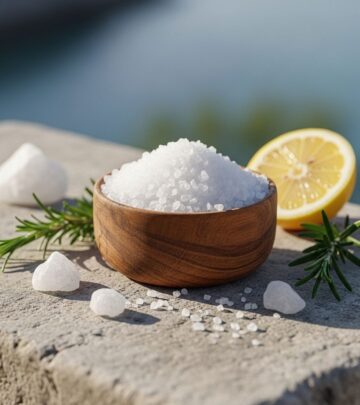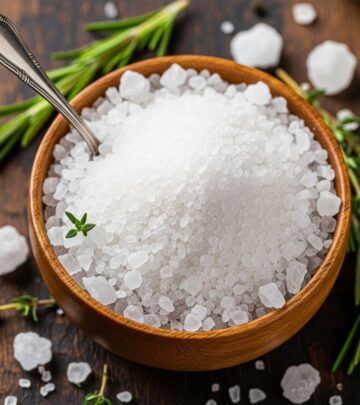26 Impressive Benefits of Aloe Vera Juice for Health, Skin, and Hair
A simple daily sip to boost hydration, ease digestion, and support glowing skin.

Aloe vera juice has gained wide popularity among health-conscious enthusiasts, owing to its remarkable array of vitamins, antioxidants, and minerals. Prized for centuries in traditional medicine and supported by emerging research, aloe vera juice is celebrated for its effects on digestion, immunity, skin, oral health, blood sugar, and more. This article delves into 26 scientifically backed and traditionally valued benefits of aloe vera juice, outlines correct usage, and addresses safety concerns—so you can make an informed choice for your well-being.
What Is Aloe Vera Juice?
Aloe vera juice is a thick, nourishing liquid extracted from the inner flesh of aloe vera plant leaves. The juice is abundant in amino acids, enzymes, vitamins (especially C, E, B12), minerals (calcium, magnesium, zinc), polysaccharides, and antioxidants. Its multi-faceted composition accounts for its holistic appeal and varied uses in health, skin, and hair care routines.
What Makes Aloe Vera Juice Special?
- Rich in phytonutrients like polyphenols, saponins, and anthraquinones
- 75+ active constituents: amino acids, vitamins, enzymes, minerals, and more
- Long history in Ayurvedic and folk medicine for healing and rejuvenation
- Easy to incorporate into daily diets or wellness regimens
Who Can Use Aloe Vera Juice?
- Generally safe for most adults when consumed in moderation
- Should be avoided by: pregnant or breastfeeding women, children, and people with severe kidney or liver disorders unless advised by a physician
- Always consult with a healthcare provider if you are on chronic medication
Recommended Dosage and Caution
- Typical dosage: 30–50 ml (about 2–3 tablespoons) up to 300 ml daily
- Possible side effects: abdominal cramps, diarrhea, allergic reactions in sensitive individuals
- Discontinue use if experiencing gastrointestinal distress
26 Proven Benefits of Aloe Vera Juice
1. Supports Digestive Health
Aloe vera juice is renowned for its laxative properties and soothing action on the gut lining. It helps regulate bowel movements, relieves constipation, and may ease symptoms of irritable bowel syndrome (IBS) by encouraging beneficial gut flora and reducing abdominal pain. Some studies also suggest benefits in the treatment of gastric ulcers and ulcerative colitis by its natural antibacterial effects against Helicobacter pylori.
2. Rich Source of Antioxidants
Containing potent polyphenols and vitamins C & E, aloe vera juice combats oxidative stress by neutralizing free radicals. This can help reduce systemic inflammation, support cell protection, and contribute overall to healthy aging.
3. Boosts Immune Function
Aloe vera’s bioactive compounds—such as polysaccharides—may enhance immune responses, promoting resistance against infection and facilitating wound healing. Polysaccharides play a role in macrophage activation and antibody production.
4. Promotes Skin Health
When taken internally, aloe vera juice may help reduce acne, eczema, and skin inflammation thanks to its detoxification and anti-inflammatory properties. The skin appears more hydrated, less prone to irritation, and better equipped to repair itself.
5. Aids in Detoxification
With a high water content and natural cleansing action, aloe vera juice supports detoxification by flushing toxins from the digestive tract, aiding the liver in processing metabolites, and helping balance pH levels. This promotes overall organ efficiency.
6. May Help Manage Weight
Some evidence suggests aloe vera juice may boost metabolic activity, improve digestion, and suppress appetite, thus assisting weight management. Its natural enzymes and high water content help break down fat and sugars more efficiently. However, use as a long-term weight loss aid remains controversial and should be approached with caution.
7. May Regulate Blood Sugar
Research indicates aloe vera juice may help regulate fasting blood glucose and improve insulin sensitivity in people with prediabetes or type 2 diabetes. Compounds like acemannan have demonstrated mild hypoglycemic activity, though aloe vera should not be used as a stand-alone treatment.
8. Hydrates Effectively
Aloe vera juice is loaded with water, which helps prevent dehydration and maintains electrolyte balance, especially after strenuous physical activity or illness-induced fluid loss.
9. Promotes Liver Health
The juice helps stimulate bile production and supports liver detoxification. Some studies suggest that its protective effect extends to mitigating hepatic damage caused by toxins.
10. Encourages Alkalinity
With its slightly alkaline nature, aloe vera juice counteracts acidity in the body and helps restore homeostasis, making it advantageous for individuals prone to acid reflux or indigestion.
11. Supports Cardiovascular Health
Preliminary evidence shows aloe vera juice may contribute to lowering cholesterol, regulating blood pressure, and reducing cardiovascular risk due to its anti-inflammatory, antioxidant, and viscosity-modifying properties.
12. May Improve Oral Health
Aloe vera juice has been shown to reduce gum inflammation, promote healing of mouth ulcers, and inhibit cavity-causing bacteria. Its gentle astringent and antibacterial properties make it a smart ingredient in many oral rinses and toothpastes.
13. Soothes Heartburn and Acid Reflux
Consuming aloe vera juice may provide natural relief from symptoms of heartburn and acid reflux by calming irritation in the esophagus and normalizing stomach acid secretion.
14. Contributes to Eye Health
The high levels of vitamin A, vitamin E, and other antioxidants in aloe vera juice nourish eye tissues and may help prevent conditions such as macular degeneration and cataracts when complemented by a balanced diet.
15. Supports Healthy Joints and Muscles
Bioactives in aloe vera juice reduce joint inflammation and help lubricate tissues, occasionally providing relief from arthritis or muscle pain when integrated into a comprehensive wellness routine.
16. May Balance Hormonal Levels
Some anecdotal evidence links aloe vera juice to harmonizing hormone secretion due to its adaptogenic action and array of micronutrients. While research is limited, its impact on overall endocrine function makes it an area of growing interest.
17. Can Help Treat Anemia
Natural folic acid and iron content in aloe vera juice may support red blood cell formation and help in managing mild anemia.
18. May Improve Allergic Rhinitis
The anti-inflammatory and immune-supportive effects of aloe vera juice can ease symptoms of allergies, reducing nasal congestion and skin irritation in some people.
19. Good for Women’s Reproductive Health
Aloe vera juice is traditionally used to help regulate menstruation and soothe menstrual cramps. Its phytonutrients may support hormonal balance and reproductive tissue repair.
20. Provides Essential Vitamins
- Vitamin C: boosts immunity, supports collagen synthesis
- Vitamin E: offers antioxidant protection
- Vitamin B12: aids nerve function and energy metabolism
21. Offers Essential Minerals
- Calcium: supports bone and dental health
- Magnesium: involved in muscle and nerve regulation
- Potassium: maintains heart rhythm and cellular hydration
- Zinc and Chromium: contribute to immune function and glucose regulation
22. May Promote Hair Growth
Aloe vera juice is believed to nourish the scalp, soothe inflammation, and reduce dandruff. Its moisturizing effect may prevent dryness and enhance the overall health, shine, and thickness of hair—though direct human studies are limited.
23. Delivers Essential Amino Acids
Aloe vera juice provides 16 out of 22 amino acids required for health, including seven of the eight essential amino acids, which are crucial for muscle repair, enzyme synthesis, and metabolic functions.
24. Natural Source of Enzymes
Enzymes in aloe vera juice—including amylase and lipase—help break down carbohydrates and fats, potentially improving nutrient absorption and digestive efficiency.
25. May Enhance Overall Vitality
The synergistic effect of all the nutrients in aloe vera juice may help boost energy levels, stamina, and general well-being when included as part of a healthy diet.
26. May Have Antimicrobial Properties
The natural saponins and salicylic acids in aloe vera juice provide antibacterial, antiviral, and antifungal effects, which can contribute to immunity and skin health.
Aloe Vera Juice Nutrition Table (Approximate Per 100 ml)
| Nutrient | Amount | Benefit |
|---|---|---|
| Calories | 17–20 kcal | Low calorie, hydrating |
| Vitamin C | 8–9 mg | Immunity, skin health |
| Vitamin E | 0.2 mg | Antioxidant, skin protection |
| Calcium | 30 mg | Bone, nerve health |
| Potassium | 45 mg | Heart, cellular health |
| Magnesium | 5 mg | Metabolism, muscles |
| Folate | 7 mcg | Cell growth, anemia prevention |
| Amino Acids | 16 types | Muscle, tissue repair |
Frequently Asked Questions (FAQs)
Q1: Can you drink aloe vera juice every day?
Yes, most healthy adults can drink moderate amounts daily (up to 300 ml), but it’s essential not to exceed recommended dosages. Overconsumption may lead to digestive discomfort.
Q2: Is aloe vera juice safe for children or pregnant women?
No. Due to limited safety data and risk of uterine contractions (in pregnancy), aloe vera juice is not recommended for children or those pregnant/breastfeeding.
Q3: How should aloe vera juice be consumed for best results?
Aloe vera juice can be consumed plain, diluted with water, or added to smoothies. For digestive benefits, drink on an empty stomach; for skin benefits, use consistently for several weeks.
Q4: Can aloe vera juice help treat diabetes?
Aloe vera juice may help regulate blood sugar, particularly in prediabetes or type 2 diabetes, but it should not replace prescribed medications. Consult your physician before use.
Q5: Is there any risk of toxicity from aloe vera juice?
Excessive consumption or impure products may cause kidney/liver toxicity or electrolyte imbalance. Always choose pure, decolorized, food-grade aloe vera juice and use in moderation.
Q6: What are the visible signs of aloe vera juice quality?
High-quality aloe vera juice is usually clear to pale yellow, free of cloudiness or particles, and mild in taste. Avoid juices with added preservatives, colors, or excessive flavors.
Precautions and Possible Side Effects
- Diarrhea and abdominal cramps: May occur with high intake due to laxative properties.
- Allergic reactions: Rare, but may cause rash or respiratory issues in sensitive individuals.
- Drug interactions: Can influence blood sugar and interact with diuretics or diabetes medications.
- Liver/kidney safety: Avoid use if suffering from chronic liver or kidney disease.
- Pregnancy/breastfeeding: Not recommended due to insufficient evidence of safety.
Conclusion
Aloe vera juice embodies a fusion of ancient wisdom and modern science. With its robust nutrient content and gentle therapeutic properties, it holds potential to support digestion, immunity, skin and hair health, hydration, and more. However, like any supplement, it is best used judiciously and as part of a balanced lifestyle after consulting your healthcare provider. Choose high-quality, food-grade juice and enjoy its refreshing benefits as you embark on your journey towards wellness.
References
- https://www.stylecraze.com/articles/26-benefits-of-aloe-vera-juice/
- https://www.healthline.com/health/food-nutrition/aloe-vera-juice-benefits
- https://www.medicalnewstoday.com/articles/benefits-of-aloe-vera-juice
- https://www.goodrx.com/well-being/diet-nutrition/benefits-of-aloe-vera-juice
- https://www.stylecraze.com/articles/aloe-vera-for-dark-spots/
- https://www.scribd.com/document/373539737/how-to-use-aloe-vera-gel-for-hair-growth
Read full bio of medha deb












